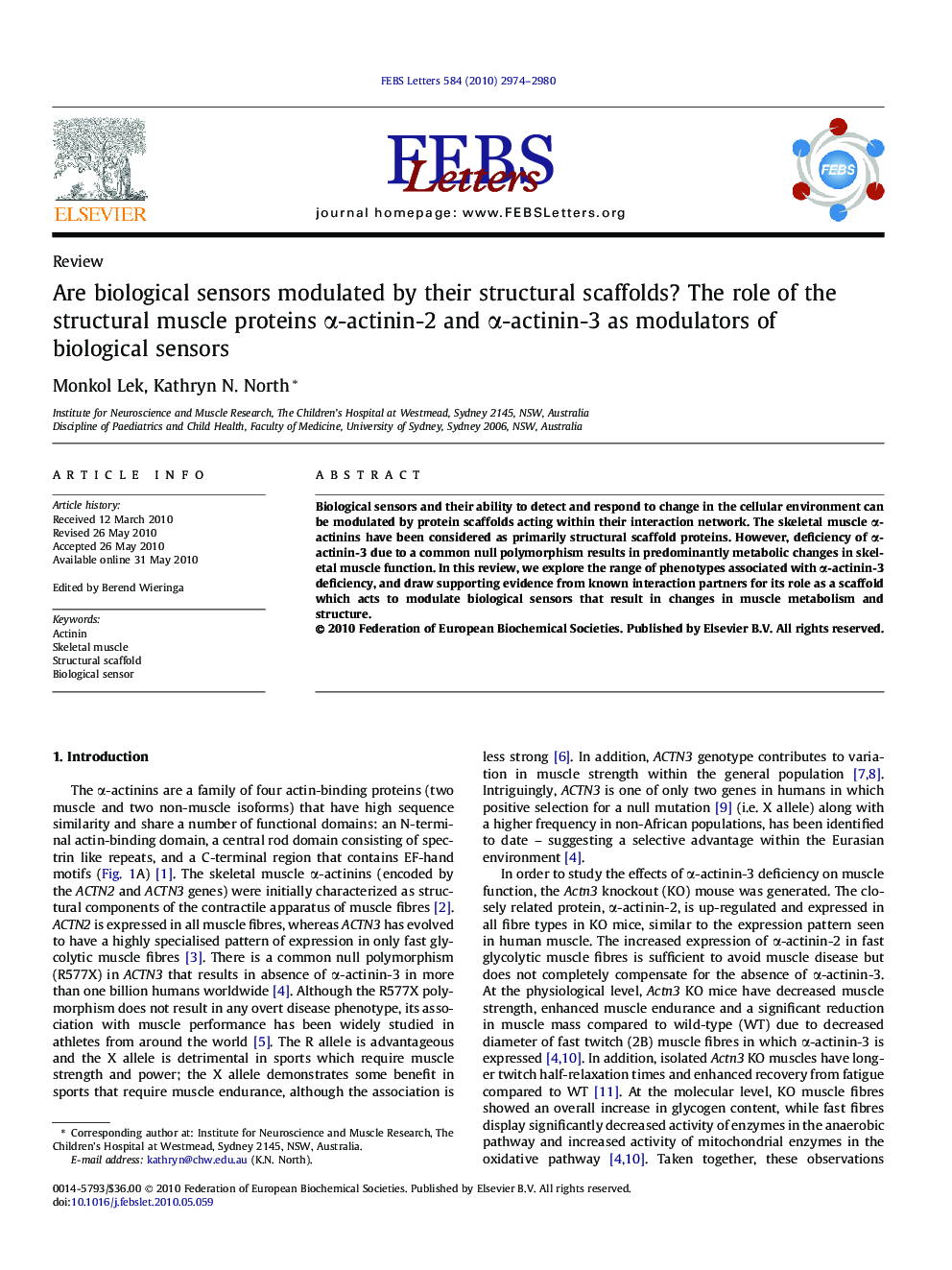| Article ID | Journal | Published Year | Pages | File Type |
|---|---|---|---|---|
| 2048892 | FEBS Letters | 2010 | 7 Pages |
Abstract
Biological sensors and their ability to detect and respond to change in the cellular environment can be modulated by protein scaffolds acting within their interaction network. The skeletal muscle α-actinins have been considered as primarily structural scaffold proteins. However, deficiency of α-actinin-3 due to a common null polymorphism results in predominantly metabolic changes in skeletal muscle function. In this review, we explore the range of phenotypes associated with α-actinin-3 deficiency, and draw supporting evidence from known interaction partners for its role as a scaffold which acts to modulate biological sensors that result in changes in muscle metabolism and structure.
Related Topics
Life Sciences
Agricultural and Biological Sciences
Plant Science
Authors
Monkol Lek, Kathryn N. North,
